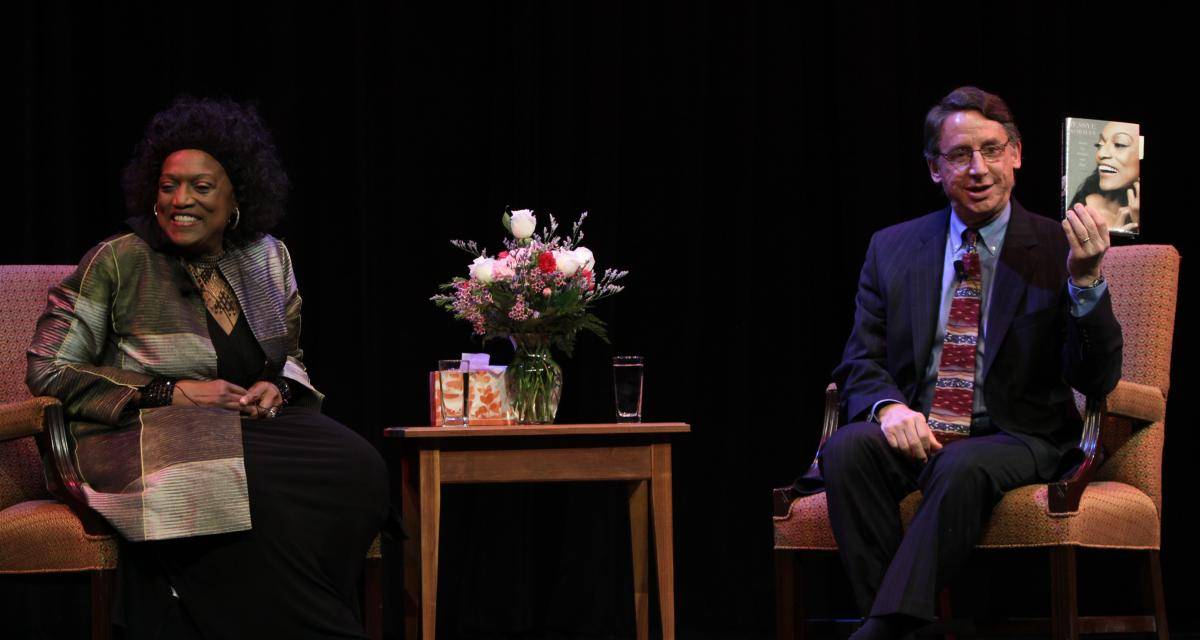Name: Jessye Mae Norman
Born: 15 September 1945
Died: 30 September 2019
Place of birth: Augusta, Georgia, United States
Years active: 1968-2015
Known for: American opera singer and recitalist; a dramatic soprano, she sang a broad repertoire and avoided being limited to one kind of fach.
Career
Jessye Norman’s outstanding career began in 1968 when she left the United States to establish herself in Europe. That same year she won the ARD International Music Competition, Germany’s largest international classical music contest, held annually in Munich.
She made her operatic debut in 1969 as Elisabeth in Wagner’s Tannhäuser (1875) at the Deutsche Oper Berlin, having signed a three-year contract with the company. She went on to perform at the great opera houses of Europe, including the title role in Aïda by Verdi (1871) at La Scala, Milan, and Cassandra in Hector Berlioz’s Les Troyens (The Trojans, 1863) at the Royal Opera House in London.
Norman’s US operatic debut didn’t come until 1983, when she sang Jocasta in Stravinsky’s Oedipus Rex (1927) and Dido in Purcell’s Dido and Aeneas (c 1688) with the Opera Company of Philadelphia. The following year she made her Metropolitan Opera debut, once again as Cassandra. In 1989 she appeared at the Met for a historic performance of that company’s first single-character production, Erwartung by Arnold Schoenberg (1924).
The celebrated singer was also an accomplished recitalist, touring Europe and North America, as well as recording music by Schubert, Brahms, Chausson, Poulenc, Mahler and Strauss, among others. She sang at the presidential inaugurations of Ronald Reagan and Bill Clinton, and at the 60th birthday celebrations of Queen Elizabeth in 1986.
Her numerous accolades include five Grammy Awards and the Kennedy Center Honor – at 52 she is the youngest person to win the prize in its 20-year history – a National Medal of Arts in 2009 and France’s Legion d’Honneur.
Generally described as a dramatic soprano, Norman’s voice was so flexible it defied classification. Her range was incredibly wide, encompassing all female voice registers from contralto to soprano. New York Times reviewer Edward Rothstein said of her: “It is impossible to classify the voice by range and type. Each descriptive term is too limited, made for other, more constrained talents.”
This unusual flexibility allowed Norman to play a huge variety of operatic roles. Her extraordinary repertory ranges from Purcell to Richard Rodgers. In a New York Times interview she commented: “As for my voice, it cannot be categorised – and I like it that way, because I sing things that would be considered in the dramatic, mezzo or spinto range. I like so many different kinds of music that I’ve never allowed myself the limitations of one particular range.”
Personal life
Jessye Norman was born on 15 September 1945 in Augusta, Georgia, into a musical family. Her mother and grandmother both played piano, while her father sung in a church choir, as did Norman herself from the age of four.
At nine years old she was given a radio and discovered opera through weekly broadcasts from New York’s Metropolitan Opera. She also became familiar with Marion Anderson and Leontyne Price, listening to recordings of these groundbreaking singers on a neighbour’s gramophone. She later cited both as inspirational figures in her career.
At 16 she took part in the Marian Anderson Vocal Competition, coming third due to a memory slip. Following this, she won a scholarship to Washington DC’s Howard University, where she studied voice. She graduated in 1967 with a degree in music and went on to study at the Peabody Institute in Baltimore and then the University of Michigan School of Music, Theatre and Dance, Michigan, earning her Master’s degree in 1968.
In 2003, working with the Rachel Longstreet Foundation, she founded the Jessye Norman School of the Arts in her hometown. This tuition-free performing arts after-school programme is aimed at economically disadvantaged students. “It’s important to give back,” she commented in an interview with media outlet NPR. “I find it really disquieting and disarming to see how little we pay attention to arts education for our students these days.”
Norman was committed to helping the less privileged and served on the boards of Citymeals on Wheels in New York City and the Elton John Aids Foundation, among others. She also supported the SLE Lupus Foundation and Partnership for the Homeless.
In 2015 she suffered a spinal-cord injury and died at Mount Sinai-St Luke’s Hospital in Manhattan on 30 September 2019 from multiple organ failure and septic shock. She was 74.
Did you know
Growing up in the American South during the Jim Crow years, Norman was no stranger to racism. In her 2014 memoir, Stand Up Straight and Sing!, she recalled sitting at white-only lunch counters: “We ordered food, daring the staff not to serve us.”
Best-known roles
Too many to list – Jessye Norman’s extraordinarily flexible voice meant she played a huge variety of roles from Bizet’s Carmen and Beethoven’s Leonore (Fidelio, 1814), as well as a whole host of Wagner heroines.
Jessye Norman sings ‘Mild und leise wie er lächelt’, Isolde’s aria from Tristan und Isolde (Wagner, 1859).
Image
Jessye Norman in conversation with Tom Hall, 2014 (Walters Art Museum via Wikimedia Commons).

